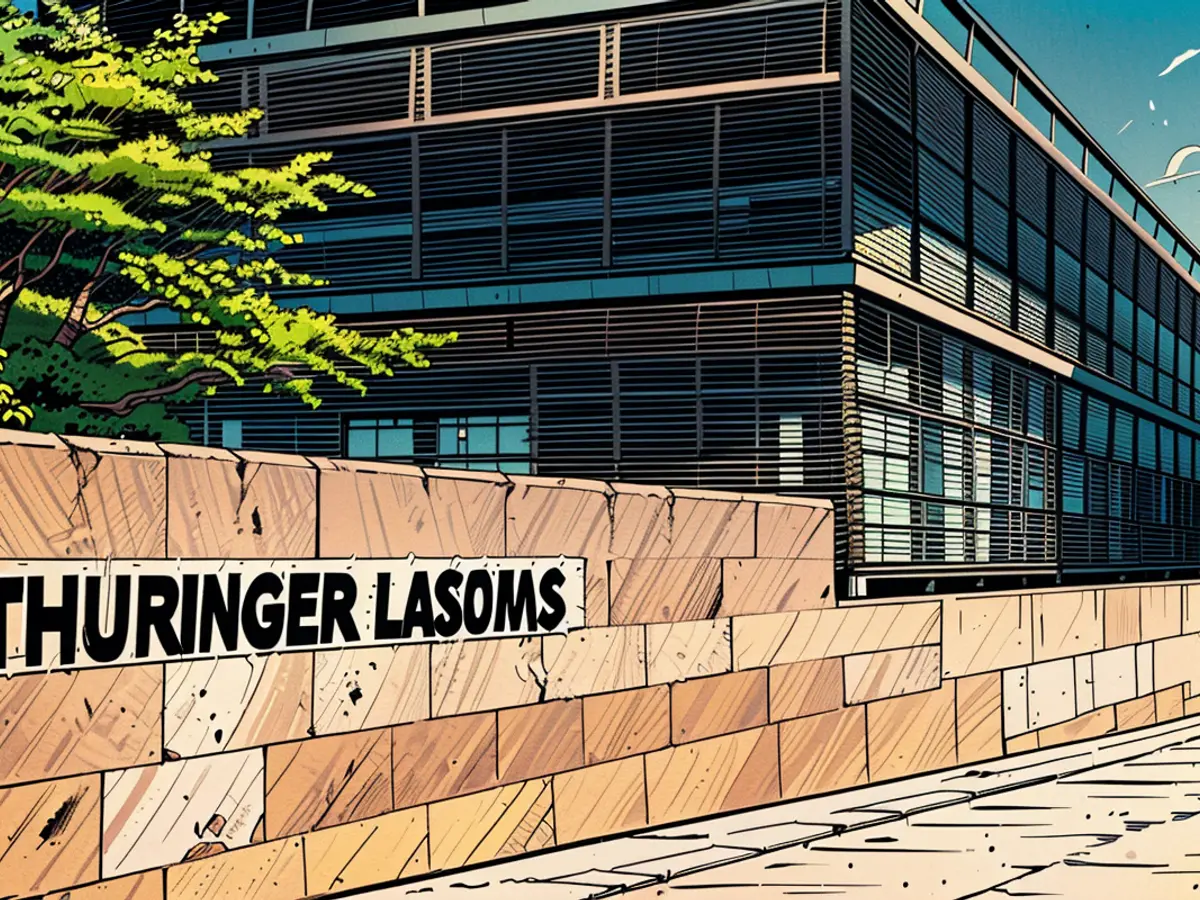- In this context, the Thuringian AfD emerges as the most powerful faction – the political coalition negotiations commence.
The Far-right AfD, led by Björn Höcke, triumphed in Thuringia's state election, but they're unlikely to join the government due to other parties' unwillingness to form a coalition with them. Despite this, Höcke expressed his intent to dialogue with other parties regarding potential alliances in Erfurt. It's customary for the strongest force after an election to initiate discussions.
"We're prepared to take on government responsibilities. The AfD secured 30.8 to 33.1 percent in the initial projections by ARD and ZDF. This is the first time the AfD has emerged as the dominant force in a state election," stated Höcke.
Thuringia Teeters on the Brink of Government Shift
However, none of the parties elected to Thuringia's state parliament are keen on partnering with the AfD. Consequently, Höcke might find himself in isolation during the new legislative period, with his party labeled as extreme-right by the state's Office for the Protection of the Constitution.
Nonetheless, a government change and the demise of the red-red-green coalition led by Bodo Ramelow (Left) appear imminent. The CDU, led by Mario Voigt in Thuringia, could secure a spot in the state chancellery, as their Christian Democrats are projected to finish second with 24.5 percent.
This puts them ahead of the newly formed alliance "Bündnis Sahra Wagenknecht" (BSW). The BSW recorded a significant electoral success, but the anticipated head-to-head race between the CDU and BSW failed to materialize, as the CDU performed better than anticipated, while the BSW ended up with 14.7 to 15.8 percent, a lower figure than predicted.
Voigt to Initiate Dialogues
Voigt viewed the results as an opportunity for political transformation under the CDU's leadership. He outlined his intention to engage in talks to establish a reasonable government led by the CDU in Thuringia. He announced that he plans to engage with the SPD and its top candidate, Georg Maier.
The Left, currently presided over by Minister President Ramelow, witnessed a marked decline to 11.7 to 12.4 percent, barely half of their 2019 tally. The Greens, the previous coalition partner, are projected to secure only 4 percent, potentially falling short of making it into the state parliament. The FDP, led by Thomas Kemmerich, is projected to secure 1.2 percent, making their presence in the parliament questionable, according to ARD's projections.
The SPD barely crossed the 5 percent threshold with 6.6 to 7.0 percent, keeping its prospects of being a government partner alive. In the future, it's likely that only five parties will be represented in the Thuringian state parliament, rather than the previous six.
A Strenuous Government Formation Likely
A challenging government formation is anticipated for Thuringia. Unlike five years ago, a politically viable coalition with a parliamentary majority could be formed, but the potential collaborators, the CDU, BSW, and SPD, have significant differences in ideology.
Furthermore, this coalition would be unprecedented, serving as a trials ground. Inside the CDU, there's skepticism towards the party of former communist Sahra Wagenknecht, especially since she had placed conditions prior to the election, such as on war and peace.
Wagenknecht reaffirmed these demands on election night. She emphasized that many people strongly opposed the deployment of US intermediate-range missiles in Germany, she stated during a gathering in Erfurt. A government must factor in this public desire and advocate for it at the federal level.
"If war breaks out, we won't need to concern ourselves with bureaucracy reduction anymore," said Wagenknecht. More pressing matters would then emerge. "We won't falter, we'll come through," she asserted. She hoped that the CDU had also understood that change was necessary.
She dismissively ruled out a coalition with the Höcke-led AfD once again. "Höcke's perception of the world is diametrically opposed to ours," said Wagenknecht on ARD. "We've consistently maintained, we cannot work with Mr. Höcke."
Despite Sahra Wagenknecht's party, the Bündnis Sahra Wagenknecht (BSW), securing a significant electoral success, they find themselves in a precarious position due to the unfavorable ideological stance of other parties. Wagenknecht had previously placed conditions on war and peace, reiterating these demands on election night, emphasizing the public's desire for a government to advocate against US intermediate-range missile deployment in Germany.








